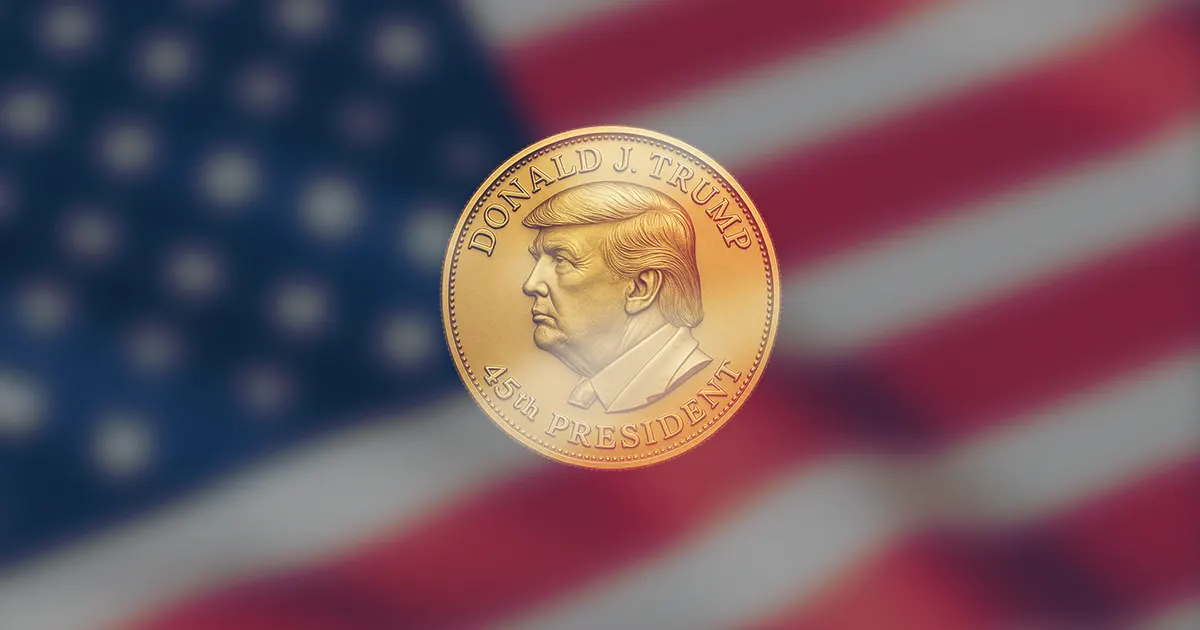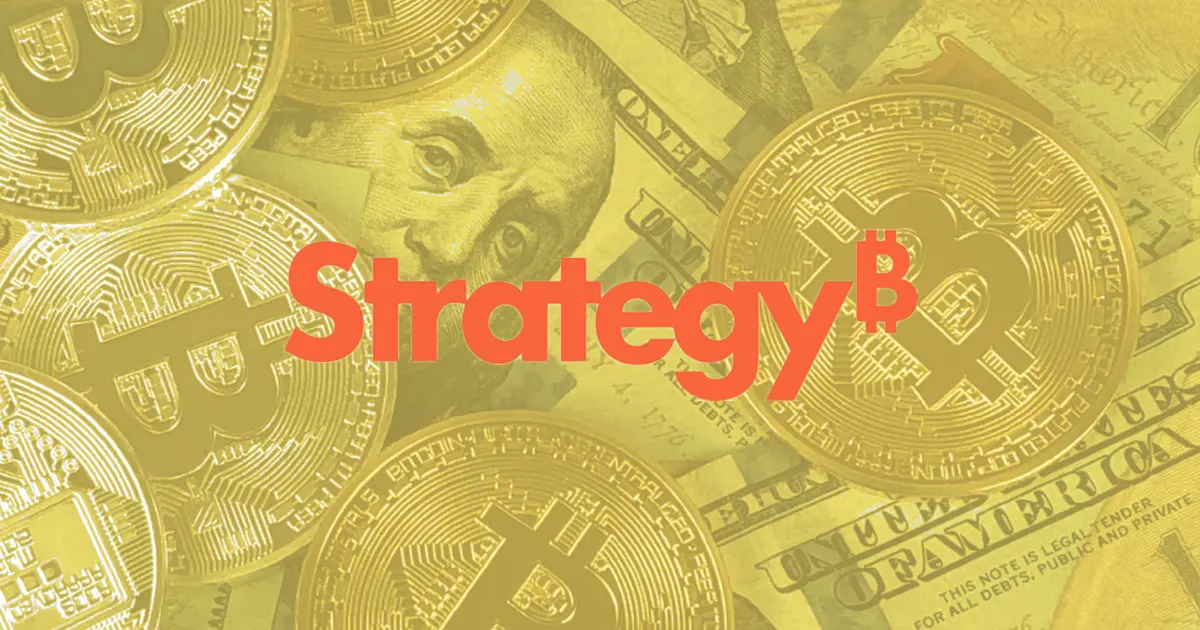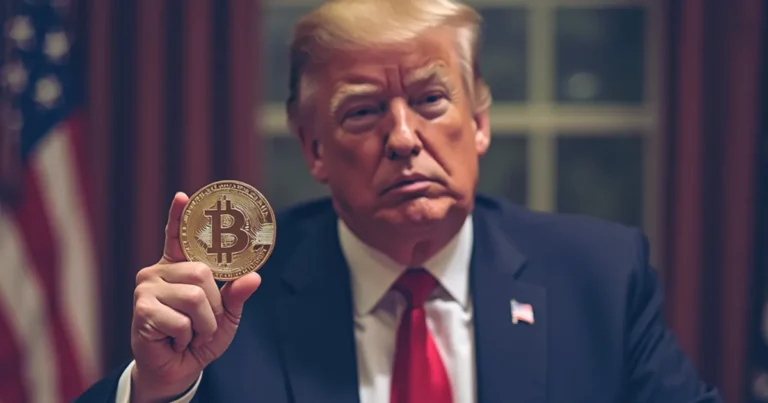3-7-2025 – When a sitting president’s personal fortune becomes intertwined with the very asset class he’s supposed to regulate, we’re no longer talking about market dynamics—we’re witnessing the birth of a new kind of crony capitalism that should make every crypto believer deeply uncomfortable.
Trump holds 8% of his $6.4B net worth in crypto, with major stakes in WLFI, TRUMP tokens, and U.S.-based Bitcoin mining firm American Bitcoin. This isn’t some diversified portfolio allocation—it’s a concentrated bet that positions the most powerful man in the world as crypto’s biggest cheerleader with billions of reasons to keep cheering.
The memecoin president
Trump didn’t gradually accumulate Bitcoin like a digital gold enthusiast or invest in promising DeFi protocols after careful analysis. Instead, he launched his own memecoin that netted at least $350 million through sales of tokens and fees. Within days, the market cap exploded to over $27 billion, valuing his holdings at more than $20 billion—though it has since dropped from a market capitalization of $9 billion in January to around $2 billion today.
This is the crypto equivalent of printing money, and it happened because Trump slapped his name on digital tokens that serve no purpose beyond speculation. For an industry that prides itself on decentralization and “being your own bank,” watching the president monetize his political influence through memecoins should trigger every alarm bell we have.

The historical parallel is uncomfortable but unavoidable. We’ve seen this playbook before in emerging markets where political figures leverage their positions to extract wealth from new asset classes. The difference is that crypto was supposed to be different—resistant to exactly this kind of political capture.
Policy through self-interest
The policy implications are where this gets truly dangerous. The Executive Order begins to resolve the current disjointed handling of cryptocurrencies seized through forfeiture by, and scattered across, various Federal agencies. Trump has established a Strategic Bitcoin Reserve and consistently pushed for crypto-friendly legislation like the GENIUS Act, which “is going to make America the UNDISPUTED Leader in Digital Assets.”
On its surface, this sounds like exactly what the crypto community has been begging for—clear regulatory frameworks and government support. But here’s the uncomfortable question: Are these policies being crafted to benefit the broader crypto ecosystem, or to protect and enhance Trump’s personal crypto empire?
When Trump signed into law a bill to overturn a revised rule from the Internal Revenue Service that expanded the definition of a broker to include decentralized cryptocurrency exchanges, was this about protecting innovation or protecting his own investments? The timing is suspicious when you consider that clearer broker rules might have complicated the legal status of his token ventures.
The institutional irony
For those of us who remember the early days of Bitcoin—when it was championed as a tool for financial sovereignty and resistance to government overreach—this moment feels like a betrayal of first principles. We spent years arguing that Bitcoin couldn’t be controlled by governments, yet here we are watching government policy potentially being shaped by one man’s crypto holdings.
The irony runs deeper when you consider that Trump’s crypto wealth dwarfs that of most institutional investors who entered the space. The president’s crypto holdings now represent nearly 40% of his net worth — or approximately $2.9 billion. This makes him not just a policy maker, but potentially the single largest individual crypto whale in a position of political power.

Compare this to how we’ve celebrated corporate adoption. When MicroStrategy or Tesla bought Bitcoin, we praised it as institutional validation. But those were transparent business decisions by companies with shareholders and boards. Trump’s crypto empire operates in a different realm entirely—one where personal enrichment and public policy intersect in ways that would make any other industry scandal-ridden.
The uncomfortable reality
Critics will argue that Trump’s crypto support is driving adoption and legitimizing the space. They’re not wrong—his endorsement has certainly moved markets and accelerated regulatory clarity. But this creates a dangerous precedent where crypto’s success becomes tied to the political fortunes of one individual.
What happens when Trump leaves office? What happens if his political opponents decide to crack down on crypto specifically to target his wealth? We’re creating a system where Bitcoin’s trajectory could be influenced by the personal vendettas of future administrations.
The Senate passing the GENIUS Act, a landmark bill that for the first time establishes federal guardrails for U.S. dollar-pegged stablecoins is genuinely good for the industry. But it’s hard to celebrate when you know it’s being championed by someone with such massive personal stakes in the outcome.
A crossroads for crypto
Crypto’s path to mainstream adoption might require exactly the kind of political capture we originally sought to escape. The question isn’t whether Trump’s crypto empire is good or bad for Bitcoin prices—it’s whether this represents a fundamental corruption of crypto’s original promise.
For Gen X and older millennials who remember the financial crisis of 2008, who got into crypto because we were tired of systems rigged by the politically connected, this should feel familiar in the worst possible way. We’re watching the same playbook that created “too big to fail” banks now being applied to Bitcoin itself.
We can’t uninvent Trump’s crypto empire, and we can’t pretend that his support hasn’t been beneficial for market prices and regulatory clarity. But we can acknowledge that this success comes with a cost—one that future generations of crypto users will have to pay.
Remember that every technology eventually faces this test: Will it maintain its revolutionary potential, or will it be captured by the very systems it sought to replace? Trump’s crypto empire isn’t just a political story—it’s a referendum on what kind of future we want Bitcoin to have.


